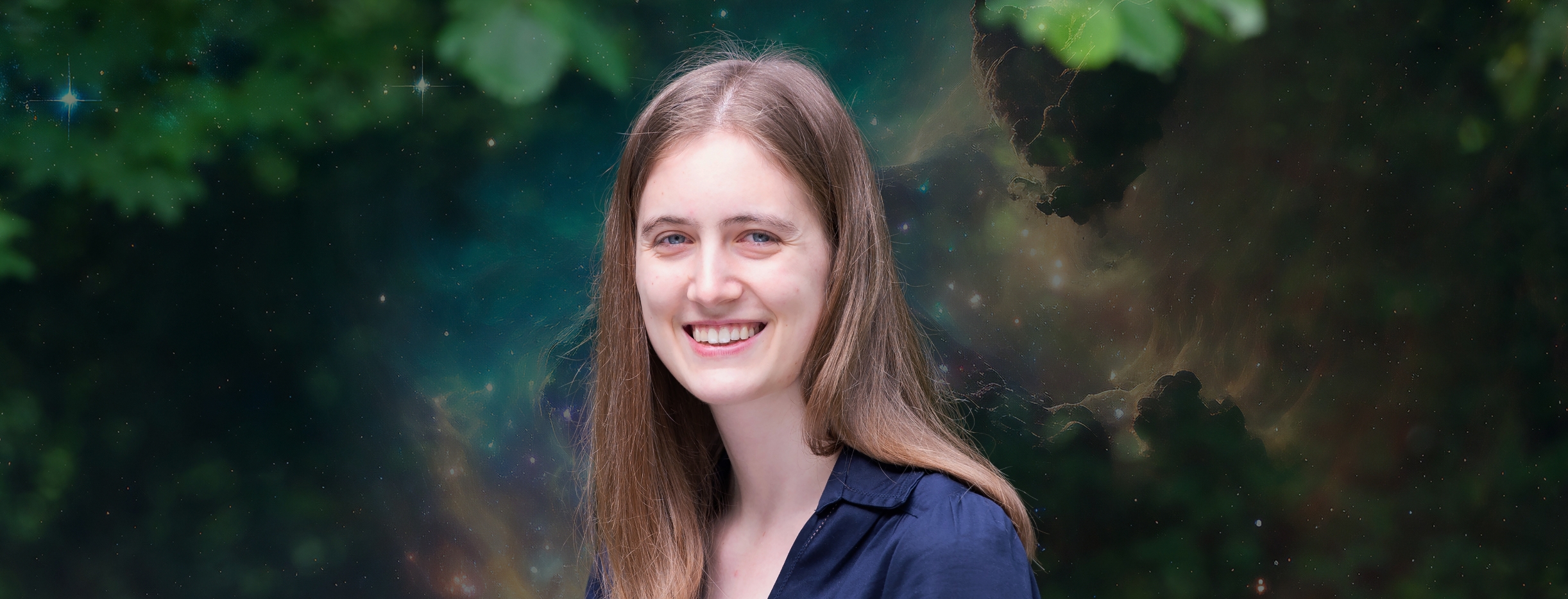Quantum Possibilities
Award-winning, early career physicist pursues pioneering research
Anna Soper’s love of math and how the world works began in elementary school. Starting in fourth grade, she participated in math club. In middle school, she was captivated by Neil deGrasse Tyson’s Cosmos: A Spacetime Odyssey. “I was struck by how you can use elegant mathematical equations to explain the laws of nature.” She continued to pursue her interests, taking physics and engineering classes and joining related clubs during college.
Now she’s a first-year graduate student at Stanford University and a standout in the physics field. In 2023, she was one of 15 recipients of the prestigious Hertz Fellowship, awarded annually to the nation’s most promising graduate students in science and technology. “It’s a great opportunity to expand my network, learn from other researchers in a broad range of disciplines and enrich my graduate experience,” Soper ’22 says.
At Stanford, she’s working toward a PhD in experimental atomic, molecular and optical (AMO) physics. Working in the lab of Jonathan Simon, associate professor of physics and applied physics at Stanford University, Soper is designing a system of unconventional optical cavities that will allow researchers to more easily read out the quantum state of an atom through efficient photon collection. Such a system would enable the pursuit of new regimes in quantum networking, active quantum error correction and quantum simulation.
Quantum simulators “are useful for helping us understand how quantum gravity works in black holes or how high-temperature superconductors work,” she says. “The idea is that if you can build and control a quantum system from the ground up, then you can understand a lot of new physics that we haven’t been able to uncover using other experimental and computational methods.”
The Hertz Fellowship is just one of several recognitions Soper has received for her work. While the COVID-19 pandemic hampered her opportunities to do in-person research, she was still able to gain valuable experience. In 2021, while still at Harvey Mudd, she received a Barry M. Goldwater Scholarship for research in computational materials science that she performed with Professor Lori Bassman (engineering). The following year, she was a WAVE fellow at Caltech, where she did research in topological photonics and optical computing. In addition to the Hertz Fellowship, she was a 2023 recipient of the National Defense Science and Engineering Graduate Fellowship and one of seven alumni to receive a National Science Foundation Graduate Research Fellowship, which recognizes outstanding researchers who have the potential to become experts who can contribute significantly to research, education and innovation in the STEM fields.
While Soper’s path to physics seems clear now, when choosing a college she was unsure which area she would pursue—physics or engineering. Harvey Mudd allowed her to explore both.
“I wanted a smaller liberal arts college, but I also wanted to keep engineering as an option. It turns out that is really difficult to find at most liberal arts colleges.” Soper says that Harvey Mudd was the ideal choice as it has “both an outstanding engineering and physics department and emphasizes humanities.” Despite choosing to major in mathematics and physics, she still was able to take advantage of the engineering program—managing to take most of the core engineering courses—which she says have helped her immensely with the engineering required for her graduate research.
As a violinist and violist, it was also important that college provide outlets for her to grow musically. With the Claremont Consortium, she was able to continue studying viola and participate in orchestra and chamber groups at Pomona College. Like physics, music has followed her to Stanford, where she plays in its orchestra and has gathered a chamber group of AMO physicists to play Schubert’s Trout quintet this summer.
Soper expects to earn her PhD by 2028 and then complete a postdoctoral fellowship. She hopes to continue in academia with a faculty position that will allow her to build her own research group, but she’s also open to working in industry. There’s a lot of hype around quantum computing, she says, and major technology companies, including Google, IBM and a raft of startups, all have quantum computing sectors that “hire PhD physicists in order to be at the forefront of the field.” In any case, she is excited to continue learning and sharing her knowledge with others and is grateful for the foundation Harvey Mudd provided.
